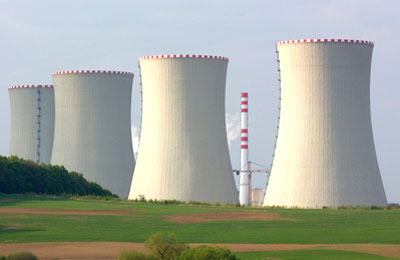
Turkey to build home-grown nuclear industry
Ankara, May 9, 2013
Turkey is aiming to build a home-grown nuclear industry over the next decade as it seeks to cut reliance on costly imported oil and gas, even though the nuclear newcomer outsourced its first two atomic power plants to foreign firms, said experts.
The fast-growing nation of 76 million people, which faces a ballooning energy deficit, last week awarded a $22 billion deal to a Japanese-French consortium to build its second nuclear power plant at Sinop on the Black Sea coast.
The development of its planned first nuclear plant was also handed to a foreign company - Russia's Rosatom, which aims for it to be operational in 2019.
Turkey is set to overtake Britain as Europe's third-biggest electricity consumer within a decade and is seeking to cut its reliance on imported energy, the root cause of a gaping current account deficit that is its main economic weakness.
Developing an indigenous nuclear industry is part of that strategy. The government hopes that by the time it builds its third planned nuclear plant, local talent and technology will be the backbone of the project.
Energy Minister Taner Yildiz said Ankara was looking for its third plant to be 80-85 per cent built with Turkish engineering and expertise, although a foreign partner would probably still be involved in the financing.
"We will wait for the third plant in order to accumulate our nuclear experience. We would team up with a foreign partner, but the third one will not be a build-and-operate deal," he said, making clear Turkey would want to operate the plant itself.
Turkey is adopting the same model that Gulf states with atomic ambitions such as the United Arab Emirates have used - relying on foreign talent and financing to build, operate and maintain their first plants as they seek to develop indigenous expertise.
Japan's Mitsubishi Heavy Industries Ltd and Itochu Corporation will build the 4,800 megawatt (MW) plant at Sinop, and France's GDF Suez will operate it. French group Areva's Atmea type reactors will be used.
Analysts say developing competent human capacity and setting a clear-cut strategy should lie at the heart of the ambitions of a country new to nuclear energy, particularly after the Fukushima disaster in Japan two years ago prompted governments around the world to rethink their nuclear strategies.
"Japan's Fukushima Daiichi plant in 2011 demonstrates the consequences of technical and human failures in the sector," the Brookings Institute said in a paper late last year that compared Turkey, Jordan and the United Arab Emirates' nuclear plans.
While the UAE has a more comprehensive approach to developing home-grown talent, Turkey has the advantage of a deeper level of experience in nuclear science, experts say.
John Banks, one of the authors of the Brookings Institute paper, said Turkey needed to develop its human capacity fast.
"It is understandable that Turkey would outsource these skills - talent, technology - but it still needs to be an intelligent customer to oversee the requirements," he said, pointing out that the reactors planned for Turkey's first and second planned plants were new designs untested elsewhere.
"This poses a big challenge for the Turkish regulator ... If you are talking about connecting these reactors to the grid within ten years ... then do you have a workforce plan that stretches out that far?"
The agreement with Japan envisages the setting up of Turkish vocational colleges and universities to provide nuclear training. Under the deal with Rosatom 100 students each year will be trained in Russia. The programme attracted over 5,000 applications for the positions this year.
Turkey is working to establish universities and vocational colleges near Sinop, where the second plant will be located, with the aim of educating a new generation of nuclear engineers.
Robin Mills at Dubai-based firm Manaar Consulting said Turkey was better placed to meet the human resources challenge than other nuclear newcomers such as the UAE.
"I would think Turkey would have more capability to indigenize its nuclear power programme, given its large population and a strong engineering tradition."-Reuters







